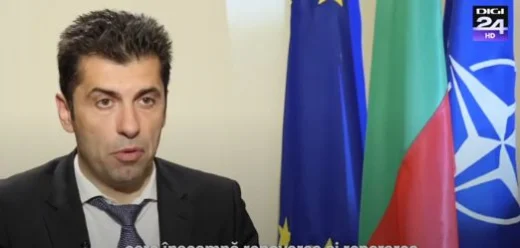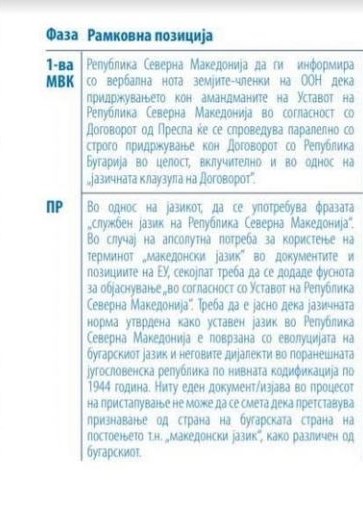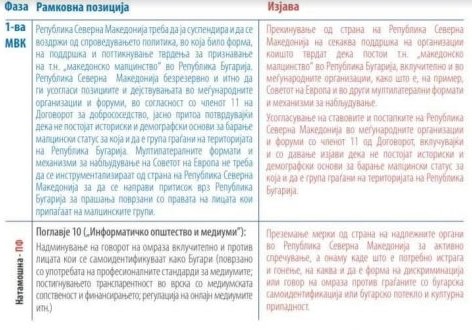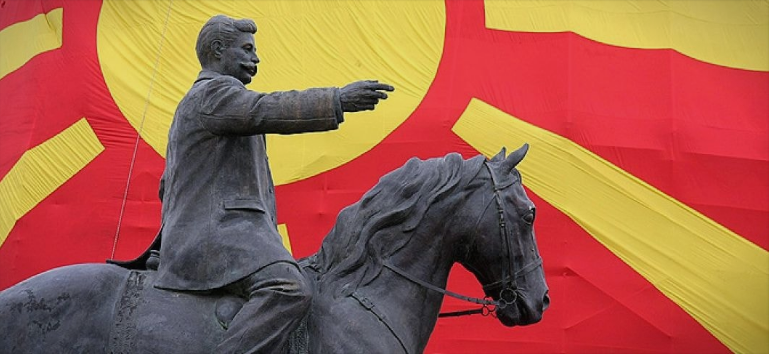I want to clarify that Bulgaria has three clear demands on the issue of Macedonia. Respect for the framework position adopted by the Bulgarian Parliament, inclusion of Bulgarians in the Constitution of Macedonia to protect their rights, and thirdly, implementation of the Good Neighborly Agreement, said Bulgarian Prime Minister Kiril Petkov after meeting with EU Enlargement Commissioner Olivér Várhelyi.

Simple and clear. That’s what we talked about with the European Commissioner, before and now, for which I thank him, Petkov said.
Várhelyi, as reported by BGNES, assessed that there is still no solution to the dispute and that it is very frustrating for the EU, because the accession process cannot continue.
I am still waiting for the support from Bulgaria and we are working on that with all these talks that I had here in Sofia, and regularly in Skopje, to finally clarify and strengthen the European perspective for the Republic of Macedonia. We would like to see an agreement reached in June, so this morning I meeting with the prime minister, the foreign minister, and he president, Várhelyi added.
Republika published the contents of the so-called Framework Position of the Bulgarian Parliament a year ago.

What does the framework position contain
It seeks concrete results of the joint commission on the common history up to 1944, including an agreement on Goce Delcev VMORO-VMRO and the Ilinden Uprising, removal of the disputed plaques and joint celebration of events and personalities.
It seeks harmonization of the history textbooks and the texts about the events in the 19th and 20th century to be presented in the language norm on which they were originally written.
Macedonia is also required to “inform the member states of the United Nations that adherence to the amendments to the Constitution in accordance with the Prespa Agreement will be implemented in parallel with strict adherence to the Agreement with Bulgaria in its entirety, including the language clause of the contract .”

Bulgaria’s demands regarding the language are no softer.
It seeks that the phrase official language of the “Republic of Macedonia” be used. In case of absolute need to use the term Macedonian language in EU documents and positions, a footnote that it is in accordance with the Constitution of the Republic of Macedonia to be added at all times saying that ot related to the evolution of the Bulgarian language and its dialects in the former Yugoslav republic after their codification in 1944. No document should be considered as Bulgaria recognizing the existence of the so-called Macedonian language as different from Bulgarian.
Macedonia is also asked to give up support for the existence of the Macedonian minority in Bulgaria and even to ask the Council of Europe not to give their support.
The media is required not to mention Bulgaria and people who identify themselves as Bulgarians in any bad context.




Comments are closed for this post.